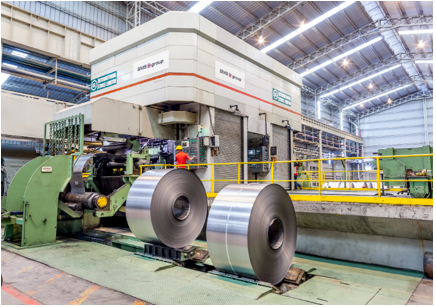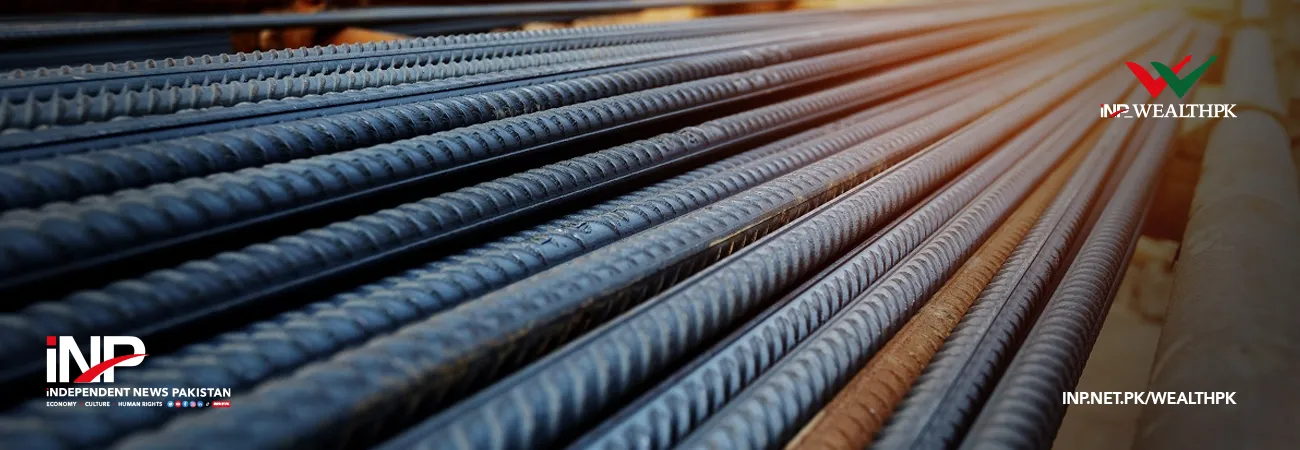INP-WealthPk
Shams ul Nisa
Pakistan’s steel industry is grappling with the declining production and sales due to the misuse of tax exemptions on imports, particularly in FATA/PATA, reports WealthPK.

This situation has put domestic manufacturers at a competitive disadvantage, jeopardizing the industry's stability and weakening their ability to compete with the artificially low-priced imported steel. Although these exemptions were initially designed to promote economic growth in the FATA/PATA regions, they instead resulted in an influx of cheaper imported steel, drastically lowering the demand for locally manufactured products.
Pakistan’s domestic steel industry, particularly companies like the International Industries Limited (IIL), is facing severe challenges due to the tax exemptions, leading to a significant decline in sales and profitability. The IIL reported a decline of 31% in the sales volume. The unconsolidated net profit saw a modest increase to Rs454 million, with the earnings per share rising slightly to Rs3.44.
However, the consolidated net profit plummeted by 94%, falling to just Rs50 million from Rs901 million in the same period the previous year, reflecting a deep financial strain across all business segments. Thus, as a key player in steel and polymer manufacturing, the IIL’s struggle underscores a broader impact on an industry crucial to the country’s economic growth and infrastructure development.
Moreover, geopolitical instability and volatile raw material prices have further strained the export prospects for Pakistani steel manufacturers. The economic fallout is significant, leading to financial setbacks for local businesses, widespread job losses impacting thousands of workers, and a decline in government revenue, as the tax incentives are misused by intermediaries instead of benefiting their intended recipients.
Thus, initiatives are in progress to tackle the issues arising from the misuse of tax exemptions in the steel sector. Active discussions with the government agencies are focused on resolving these challenges, and the recent IMF agreements bring renewed hope for economic stabilization. However, weak enforcement and the pressing need for policy reforms remain major obstacles to progress.
This exploitation has not only strained vital industries but also redirected resources away from the marginalized communities they were intended to support. Moreover, absence of concrete measures raises doubts about the effectiveness of the current regulations to the detriment of transparency, equity, and economic stability. While discussions between government bodies and industry players continue, policy reforms and enforcement efforts remain slow.
Without prompt and decisive action, the industry's future remains uncertain, forcing legitimate stakeholders to navigate increasingly difficult conditions. Therefore, coordinated efforts from both policymakers and industry leaders are essential to reestablishing fairness and ensuring long-term market sustainability.
Credit: INP-WealthPk




